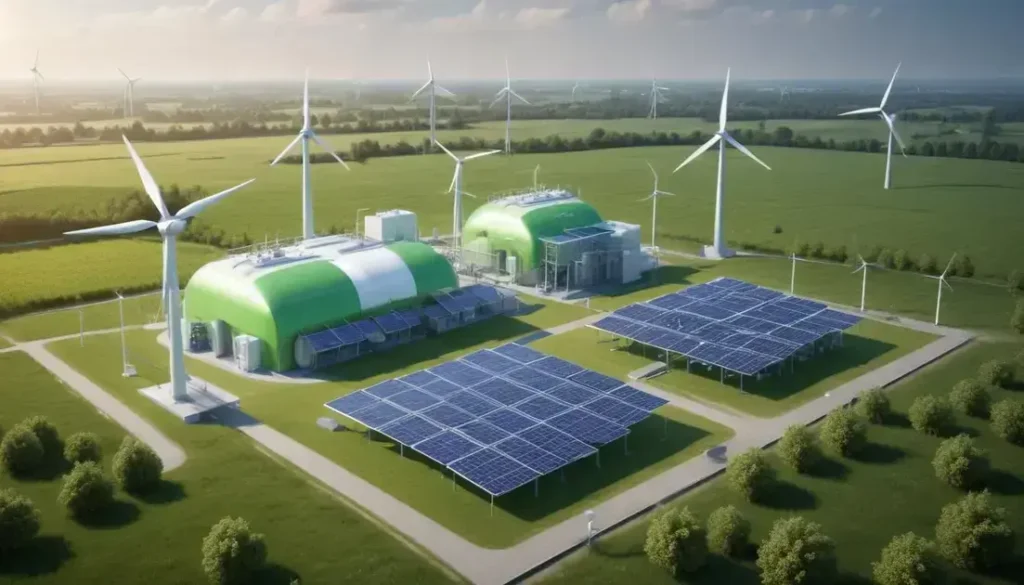Sustainable Aviation Fuel (SAF) is a renewable alternative to traditional jet fuel that significantly reduces carbon emissions, supported by blockchain technology for transparent tracking and collaborative efforts in the aviation industry to enhance sustainability.
Have you heard about the new blockchain initiative? Sustainable Aviation Fuel (SAF) is now more accessible than ever for Australian businesses, thanks to the recent launch of Avelia.
The launch of Avelia and its significance
The launch of Avelia marks a significant milestone in the journey towards utilizing Sustainable Aviation Fuel (SAF) more effectively. This innovative blockchain platform creates a transparent and secure system for tracking the production and supply of SAF, ensuring that every litre of fuel can be sourced responsibly. The integration of blockchain technology not only enhances trust among stakeholders but also promotes greater accountability in the aviation industry.
With Avelia, suppliers, airlines, and regulatory bodies can effortlessly verify the sustainability credentials of aviation fuels. This level of transparency is critical as it helps to mitigate the environmental impact of air travel, which has been under scrutiny in recent years. Adopting SAF is now more than just a possibility; it is becoming a practical solution for Australian businesses dedicated to reducing their carbon footprints.
Furthermore, the platform addresses significant challenges in the supply chain for SAF by optimizing logistics and payments. This efficiency leads to lower costs and higher adoption rates among airlines. As the aviation sector continues to evolve, tools like Avelia are vital in fostering a culture of innovation and sustainability.
How blockchain enhances SAF tracking and benefits businesses
Blockchain technology provides an innovative solution to enhance the tracking of Sustainable Aviation Fuel (SAF). By creating an immutable record of transactions, blockchain allows stakeholders to monitor the entire supply chain—from production to delivery. This transparency is essential for ensuring the sustainability claims of SAF, fostering trust among consumers and regulatory bodies alike.
With blockchain, businesses can easily verify the origin of SAF. This capability enables them to meet stringent regulations and standards while promoting their commitment to sustainability. Enhanced tracking also reduces the risk of fraud, as all transactions are securely recorded and can be audited at any time.
Furthermore, blockchain facilitates streamlined processes within the aviation industry. By automating documentation and payments, companies can save time and reduce operational costs. This efficiency not only supports the financial viability of SAF implementation but also encourages more airlines to make the switch from traditional fuels to greener alternatives.
In summary, the use of blockchain for SAF tracking benefits businesses significantly. It strengthens supply chain integrity, optimises operational efficiency, and ultimately contributes to a more sustainable aviation future.
Collaborative efforts towards aviation decarbonization
The push for aviation decarbonization is gaining momentum as industry players unite to confront climate change. Collaborative efforts among airlines, government bodies, and fuel suppliers are essential to achieving meaningful reductions in carbon emissions. By sharing knowledge and resources, these stakeholders are paving the way for innovative solutions that enhance sustainability.
One key aspect of these collaborations is the investment in Sustainable Aviation Fuel (SAF) production. Airlines are not only encouraging research into advanced biofuels but are also forming partnerships to scale up production. This joint effort not only addresses immediate fuel supply issues but also promotes the use of cleaner energy sources.
Additionally, industry forums and working groups are facilitating discussions on technology advancements that support a decarbonized aviation future. These collaborations often lead to policy recommendations and regulatory frameworks that can stimulate further investment in green technologies.
As the global demand for greener options continues to rise, the significance of these collaborative efforts cannot be overstated. By fostering a united approach towards aviation decarbonization, the industry can significantly reduce its environmental impact while ensuring a sustainable future for air travel.
Wrapping Up the Future of Aviation
The journey towards sustainable aviation is an exciting one, full of opportunities for innovation and collaboration. With advancements in Sustainable Aviation Fuel and the use of blockchain technology, the aviation industry is better positioned to reduce its carbon footprint.
Collaboration among airlines, government bodies, and suppliers is vital for making these changes a reality. By working together, they can drive progress and create a cleaner future for air travel.
As we move forward, it is essential for all stakeholders to stay committed to sustainability goals. This united approach not only benefits the environment but also meets the increasing demand for greener air travel solutions.
In conclusion, the future of aviation is bright, and with continued efforts in decarbonization, the sky is the limit!
Frequently Asked Questions
What is Sustainable Aviation Fuel (SAF)?
Sustainable Aviation Fuel (SAF) is a renewable fuel designed to replace conventional jet fuel. It significantly reduces greenhouse gas emissions and supports sustainable air travel.
How does blockchain contribute to SAF tracking?
Blockchain enhances SAF tracking by creating an immutable record of transactions. This ensures transparency and accountability in the supply chain, making it easier to verify the fuel’s sustainability.
Why is collaboration important for aviation decarbonization?
Collaboration among airlines, governments, and fuel suppliers is crucial as it fosters innovation, shares resources, and drives the development of sustainable practices across the industry.
What are the benefits of using SAF for airlines?
Using SAF allows airlines to reduce their carbon footprint, meet regulatory requirements, and appeal to environmentally conscious consumers, ultimately contributing to a positive brand image.
How can businesses support the transition to sustainable aviation?
Businesses can support the transition by investing in SAF, participating in sustainability initiatives, and encouraging partnerships that drive research and development in greener technologies.
What is the future of aviation sustainability?
The future of aviation sustainability looks promising with ongoing advancements in SAF production, technological innovation, and collaborative efforts that aim to significantly reduce the industry’s environmental impact.


